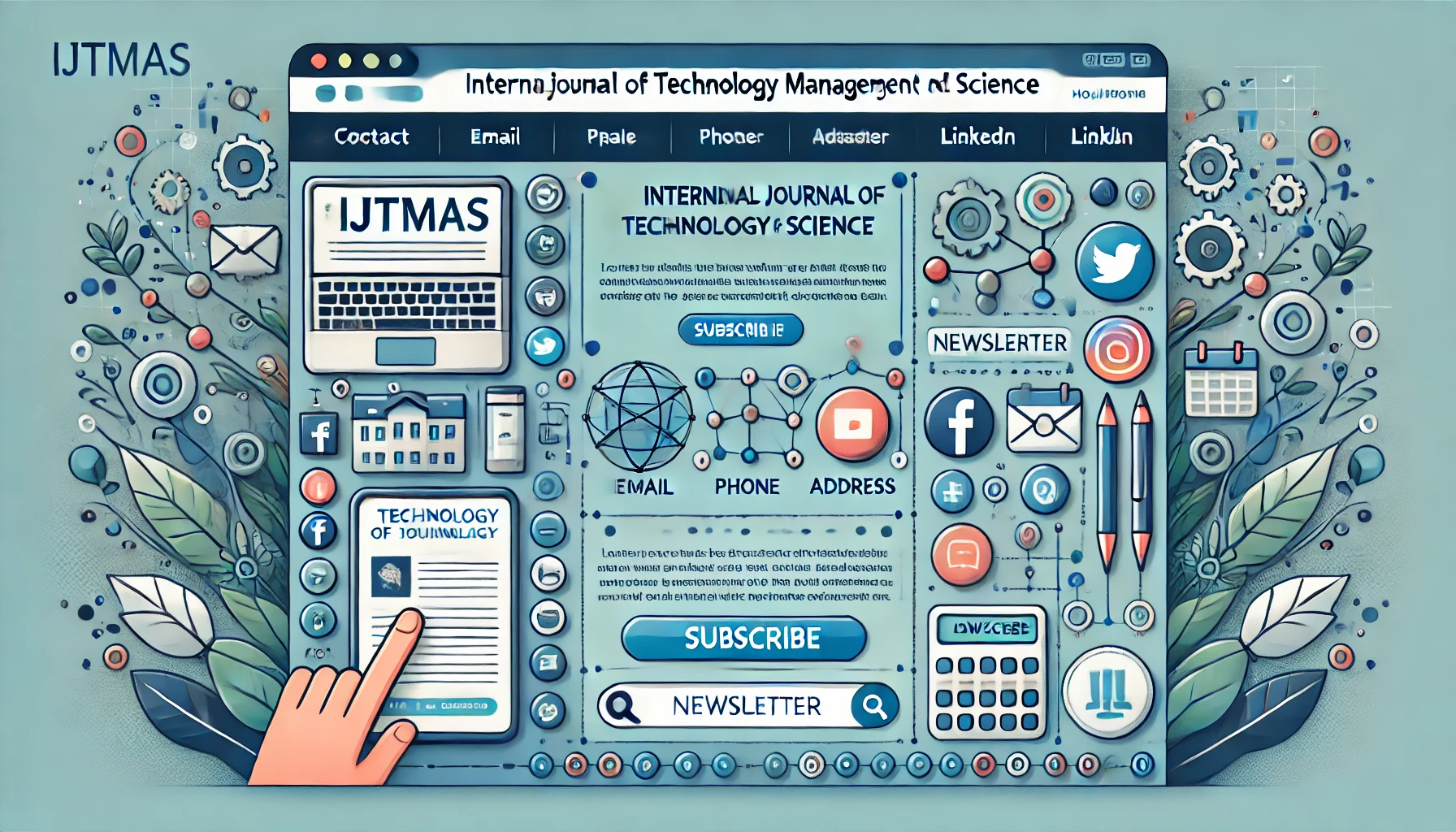
Plagiarism Policy
Plagiarism Policy for the International Journal of Technology Management and Science (IJTMAS)
Introduction
The International Journal of Technology Management and Science (IJTMAS) is committed to upholding the highest standards of academic integrity and ethical publishing practices. As a leading platform for interdisciplinary research, IJTMAS is dedicated to fostering a culture of originality and innovation. Plagiarism, in any form, undermines the trust and credibility that our journal seeks to establish and maintain. This policy outlines our stance on plagiarism and the procedures we employ to prevent and address it.
Definition of Plagiarism
Plagiarism is defined as the appropriation of another person’s ideas, processes, results, or words without giving appropriate credit. This includes, but is not limited to:
- Direct Plagiarism: The verbatim copying of text from a source without citation.
- Self-Plagiarism: Reusing significant portions of one's previously published work without acknowledging the original publication.
- Mosaic Plagiarism: Borrowing phrases from a source without quotation marks or finding synonyms for the author's language while keeping to the same general structure and meaning of the original.
- Improper Paraphrasing: Rewriting another's work without sufficient acknowledgment or altering a few words or phrases without changing the overall structure.
- Insufficient Attribution: Failure to adequately attribute ideas, data, or text to the original source, even if reworded.
Policy Highlights
- Zero Tolerance Policy: IJTMAS maintains a zero-tolerance policy towards plagiarism. All submitted manuscripts are required to be original works of the authors and must not have been published elsewhere in any form.
- Advanced Plagiarism Detection: We utilize state-of-the-art plagiarism detection software and tools to screen all submissions. Our system is continuously updated to recognize and identify all forms of plagiarism, including sophisticated paraphrasing and duplication.
- Comprehensive Author Guidelines: Authors are provided with clear and detailed guidelines on proper citation and referencing practices. Resources and workshops are available to educate authors on plagiarism and ethical writing.
- Collaborative Approach: In cases where potential plagiarism is detected, IJTMS employs a collaborative approach by engaging authors, reviewers, and editorial board members to assess the situation and provide guidance on ethical writing.
- Ethical Responsibility: Authors must ensure that their work complies with ethical standards and must declare that their manuscript is free from plagiarism. Authors are required to sign an originality statement during the submission process.
- Transparency and Communication: IJTMAS values transparency in the peer review process. Any concerns regarding potential plagiarism are communicated to authors promptly, providing them an opportunity to address and resolve issues.
Procedures for Handling Plagiarism
- Initial Screening: All submissions undergo initial screening using plagiarism detection software. If any form of plagiarism is detected, the editorial team will review the manuscript and determine the extent and nature of the plagiarism.
- Author Notification: If plagiarism is suspected, authors will be notified promptly and asked to provide a response. The editorial team may request authors to revise the manuscript to remove any plagiarized content and provide proper citations.
- Investigation and Resolution: For severe cases, a formal investigation is conducted by the editorial board. Authors may be required to submit additional documentation or clarifications. The journal reserves the right to reject the manuscript if the plagiarism is confirmed.
- Retraction and Correction: In cases where plagiarism is identified post-publication, IJTMAS will issue a retraction or correction notice. The affected article will be removed from the journal's website and databases, and a retraction statement will be published.
- Penalties: Authors found guilty of plagiarism may face sanctions, including a ban on future submissions to IJTMAS and notification to their affiliated institutions or organizations.
Preventive Measures
- Author Education: IJTMAS offers regular workshops, webinars, and resources on academic integrity, plagiarism prevention, and proper citation practices.
- Reviewer Training: Reviewers are trained to identify potential plagiarism and understand the ethical implications of academic misconduct.
- Collaboration with Institutions: IJTMAS collaborates with academic institutions to promote awareness and understanding of plagiarism and ethical publishing practices.
Conclusion
The International Journal of Technology Management and Science (IJTMAS) is dedicated to maintaining the highest ethical standards in academic publishing. We are committed to fostering a culture of integrity and originality, and we rely on the collective efforts of authors, reviewers, and editors to uphold these values. By adhering to this plagiarism policy, we ensure that IJTMAS remains a trusted source of innovative research and knowledge dissemination.




